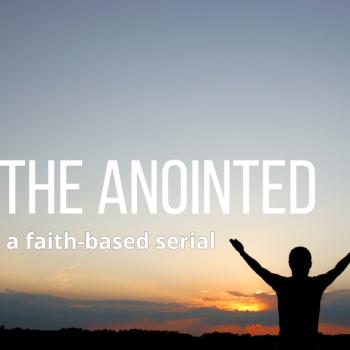Editor's Note: This article is part of the symposium, "What Is Progressive Christianity?" presented by the newly launched Patheos Progressive Christian Portal and in partnership with the Wild Goose Festival (June 23-26). Like us on Facebook to receive today's best commentary on Progressive Christianity.
Twice this week I've been asked about progressive Christianity and whether I find myself within its parameters. Twice this week I've not known quite how to respond to the inquiry. For brevity's sake, I will say that I consider myself a progressive Christian loved by evangelicals and an evangelical Christian with politics paradoxical enough to irritate professed progressives. Buddhist and Jewish companions don't know quite how to peg me, which makes me smile.
Not very helpful, is it? So very Gen-X.
Resistance to an identification with progressive Christianity here comes from the word progressive. Rooted in notions of "progress" confounded by historical and contemporary horrors, the word itself cannot stand on its own or as an adjective without serious misunderstanding. How does one "make progress" in the non-linear life of any faith? Wisdom is rarely, if ever, conceptually or stage "progressive." The wiser you become, the more you're willing to say how little you know. Progress here is paradoxical. Besides, how is this progress assessed and by whom?
Resistance deepened further this winter when I witnessed my self-claimed progressive companions inflict grievous political and personal wounds on those with whom they disagreed, all in the name of love and justice. When did progressive become a liberal fundamentalism, unable to relinquish how a problem is defined or see the humanity on both sides of irreconcilable difference?
Yet my practice and life, shaped by my Presbyterian and Quaker practice communities, are both politically liberal and theologically rooted in an historic faith tradition of Protestant Christianity. I get mistaken for politically conservative, Evangelical faith commitments by serving God and Church in a seminary with a focus on Church Renewal and an increasingly evangelical 'brand.' I love my colleagues and they seem to value my contributions too. Perhaps I've become Evangelical by association?
Then my colleagues and I were enjoying a beer and one was startled when I mentioned that Buddhist practice saved my Christian faith. (Paul Knitter has a great book on this, though I've yet to read it closely: Without Buddha I Could Not Be a Christian.) "What?!" he asked, incredulous. When someone in one Christian context inflicted a deeply personal wound on me, in both body and spirit, it was the Kagyu lineage of Tibetan Buddhist traditions—meditation practice and teacher/student devotion—that held me in nonviolence and sustained faith practice. Buddhist wisdom shaped in me a devotion to my own Teacher, to Jesus, who would shepherd me through the healing required for me to even be able to mention it here. So, I'm an oft-mistaken Evangelical with historic Christian faith commitments indebted to Buddhist wisdom. Is that progressive?
To be articulate within how the term usually functions, authority is the rub around which discussions and debates fly. For me, for the unfolding path of Christian devotion I know and, on a good day, surrender to, authority is at best a secondary force, a rudder by which I can move in currents that are way over my head. Like nuclear-war, there is no way to win a debate centered around authority. These debates have left us and "the common good" in fragments, shards of light unable to reconnect with each other without deciding beforehand whether the 'other' meets our internal norms or is professedly outside criteria of true/false, right/wrong, humanity/inhumanity. I'm getting close to simply not playing that game, stacked with those cards, anymore.




